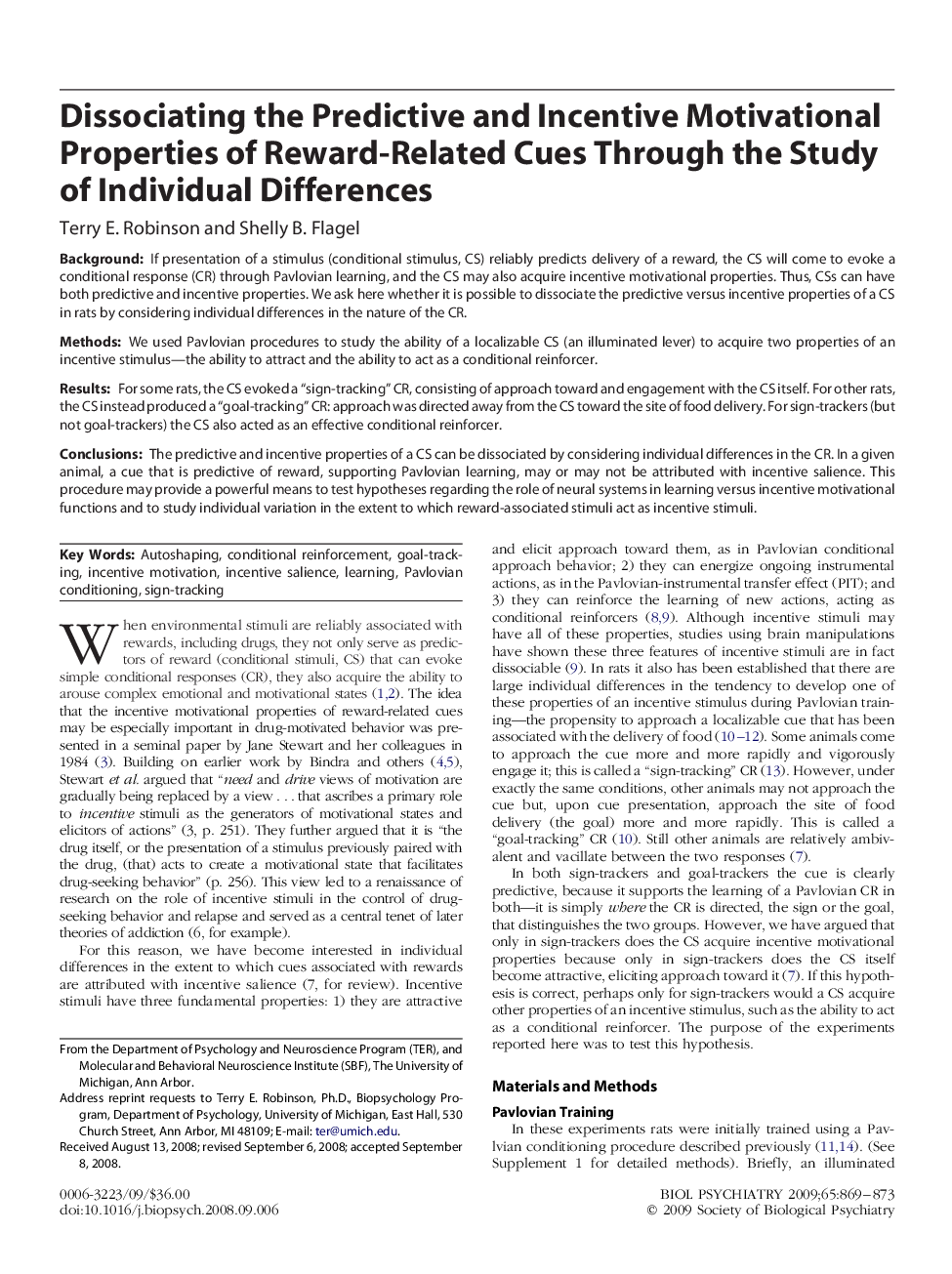| کد مقاله | کد نشریه | سال انتشار | مقاله انگلیسی | نسخه تمام متن |
|---|---|---|---|---|
| 4179235 | 1276540 | 2009 | 5 صفحه PDF | دانلود رایگان |

BackgroundIf presentation of a stimulus (conditional stimulus, CS) reliably predicts delivery of a reward, the CS will come to evoke a conditional response (CR) through Pavlovian learning, and the CS may also acquire incentive motivational properties. Thus, CSs can have both predictive and incentive properties. We ask here whether it is possible to dissociate the predictive versus incentive properties of a CS in rats by considering individual differences in the nature of the CR.MethodsWe used Pavlovian procedures to study the ability of a localizable CS (an illuminated lever) to acquire two properties of an incentive stimulus—the ability to attract and the ability to act as a conditional reinforcer.ResultsFor some rats, the CS evoked a “sign-tracking” CR, consisting of approach toward and engagement with the CS itself. For other rats, the CS instead produced a “goal-tracking” CR: approach was directed away from the CS toward the site of food delivery. For sign-trackers (but not goal-trackers) the CS also acted as an effective conditional reinforcer.ConclusionsThe predictive and incentive properties of a CS can be dissociated by considering individual differences in the CR. In a given animal, a cue that is predictive of reward, supporting Pavlovian learning, may or may not be attributed with incentive salience. This procedure may provide a powerful means to test hypotheses regarding the role of neural systems in learning versus incentive motivational functions and to study individual variation in the extent to which reward-associated stimuli act as incentive stimuli.
Journal: Biological Psychiatry - Volume 65, Issue 10, 15 May 2009, Pages 869–873